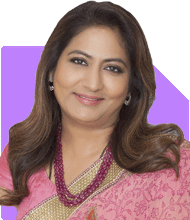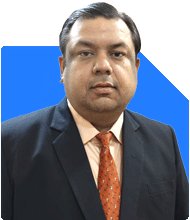Dr Deepa Suvarna |146 Answers |Ask -Follow
Paediatrician - Answered on Feb 03, 2024

Can my wife (37 yrs) and daughter (12 yrs) take cervical cancer vaccine?
Your wife will require 3 doses
Your daughter 2 doses
You may like to see similar questions and answers below
Dr Deepa Suvarna |146 Answers |Ask -Follow
Paediatrician - Answered on Nov 04, 2023
Dr Deepa Suvarna |146 Answers |Ask -Follow
Paediatrician - Answered on Feb 02, 2024
Dr Karthiyayini Mahadevan |1145 Answers |Ask -Follow
General Physician - Answered on Feb 15, 2024
Dr Nandita Palshetkar | Answer |Ask -Follow
Gynaecologist, IVF expert - Answered on Mar 04, 2025
Radheshyam Zanwar |1511 Answers |Ask -Follow
MHT-CET, IIT-JEE, NEET-UG Expert - Answered on Apr 01, 2025
Mayank Chandel |2155 Answers |Ask -Follow
IIT-JEE, NEET-UG, SAT, CLAT, CA, CS Exam Expert - Answered on Apr 01, 2025
Mayank Chandel |2155 Answers |Ask -Follow
IIT-JEE, NEET-UG, SAT, CLAT, CA, CS Exam Expert - Answered on Apr 01, 2025
Mayank Chandel |2155 Answers |Ask -Follow
IIT-JEE, NEET-UG, SAT, CLAT, CA, CS Exam Expert - Answered on Apr 01, 2025
Mayank Chandel |2155 Answers |Ask -Follow
IIT-JEE, NEET-UG, SAT, CLAT, CA, CS Exam Expert - Answered on Apr 01, 2025
Mayank Chandel |2155 Answers |Ask -Follow
IIT-JEE, NEET-UG, SAT, CLAT, CA, CS Exam Expert - Answered on Apr 01, 2025
Yogendra Arora |31 Answers |Ask -Follow
Tax Expert - Answered on Apr 01, 2025
Mayank Chandel |2155 Answers |Ask -Follow
IIT-JEE, NEET-UG, SAT, CLAT, CA, CS Exam Expert - Answered on Apr 01, 2025
Anu Krishna |1576 Answers |Ask -Follow
Relationships Expert, Mind Coach - Answered on Apr 01, 2025
Anu Krishna |1576 Answers |Ask -Follow
Relationships Expert, Mind Coach - Answered on Apr 01, 2025
























